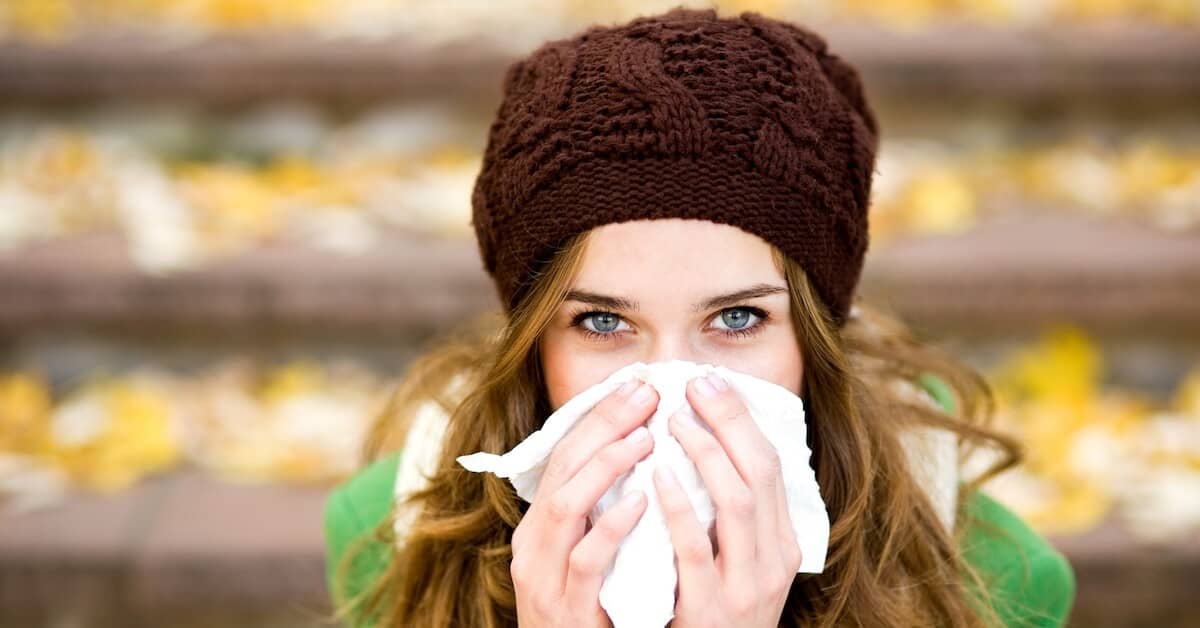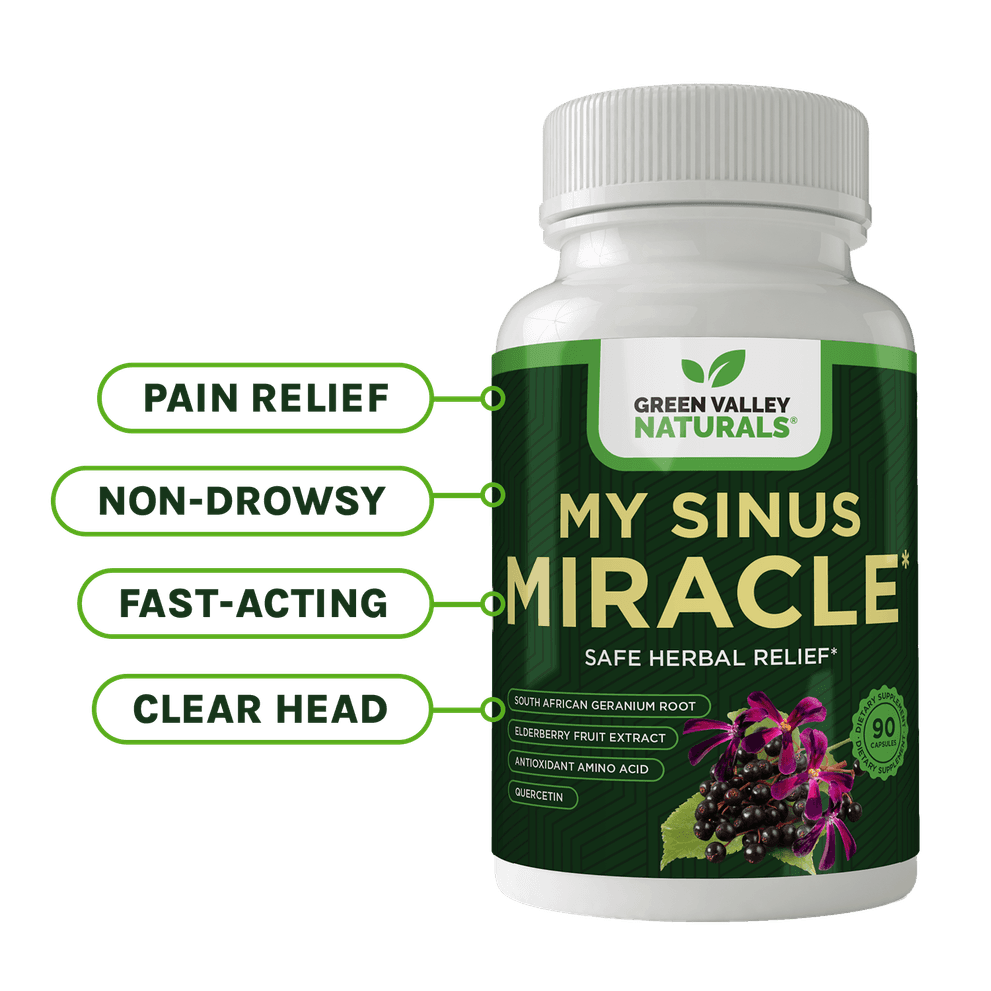
A cold should be “minor,” yet a tiny virus can hijack your week. Why do some people bounce back fast while others slog through days of sniffles? In this guide, you’ll learn the simple mistakes that quietly extend a cold—and the easy, science-backed tweaks that can help you dodge it altogether (plus two smart supplements many people overlook).
Key Takeaways
Sleep is your shield: <7 hours or fragmented sleep = higher cold risk; prioritize 7–9 hours and true rest when sick.
Fluids + humidity matter: Water, broth/tea, and a humidifier/Neti thin mucus and ease symptoms.
Be smart with meds & support: Antibiotics don’t treat colds; consider elderberry and NAC for immune support.
Want Fewer Colds This Winter? Start Here Tonight
- Not Enough Shuteye: If you’re one of my long-time readers, you know I repeatedly emphasize the benefits of sleep. Poor sleep habits increase your risk of cancer and Alzheimer’s – and of the common cold. In fact, sleep is especially important when it comes to colds. According to a new Carnegie Mellon University study,1 folks who sleep fewer than seven hours a night are three times more likely to get a cold than those who average eight or more. What’s more, study subjects who missed sleep for as little as 8% of the time while they were lying in bed were 5.5 times more apt to get sniffles than those who slept throughout the night. In other words, both quality and quantity of sleep make a difference. The study’s lead author, Sheldon Cohen, said this was the first evidence that even minor sleep disturbances can influence the body’s reaction to cold viruses. He notes that this is “yet another reason why people should make time in their schedules to get a complete night of rest.” And if you aren’t feeling well because of a cold, sleep is even more important because it helps your body fight the infection. Yes, I know, it sounds like a cliché, but if you want to kick that cold you must get plenty of rest. Don’t ignore how tired your body feels -- it’s working hard to recover!
- Playing the “I’m not really sick” game: Chances are you or someone you know has a habit of playing this game. Believe me, no one wins! Even if you’re busy and a lot of people depend on you, don’t be a martyr and attempt to carry on as usual. Not only are you exposing everyone you know and love to your germs, but you’re also preventing your body from getting well quickly.
- Misusing Antibiotics: I understand that when you are feeling miserable, you want to feel better pronto and by any means possible. For many folks this means rushing to a doctor and demanding antibiotics. No one should take antibiotics for a cold, and no reputable doctor should prescribe them. Period. Antibiotics do not kill viruses. According to the Centers for Disease Control and Prevention, up to one-third to one-half of antibiotic use in humans is unnecessary or inappropriate. Besides being useless against viruses, overuse of these drugs breeds antibiotic-resistant bacteria, which have become one of the world’s biggest health threats. Thanks to people using antibiotics when we shouldn’t, they are no longer effective when we need them. It gets worse: While doing nothing for your cold, taking an antibiotic drug can inflict a host of side effects including allergic reactions, intestinal woes and diarrhea
- Skipping Fluids: Just as country doctors used to advise, when you have a cold you need to drink plenty of fluids. Here’s why … If you get dehydrated, your cold symptoms will likely get worse. You absolutely must replace all the fluids you lose when you’re suffering from a constant dripping nose, open mouth breathing or drying up of nose and sinuses from use of decongestants. Plus, when you are sick your body becomes a mucus making machine, and thick mucus doesn’t vamoose from the body readily. However, water offers moisture to help loosen and thin the mucus so it can vacate your body quickly. When moist, your mucous membranes are better at trapping and flushing the virus invading your nasal cavities. Juice, water and herbal tea are all good choices. And – as most people have probably heard by now --chicken soup does help. In fact, chicken soup is one of the most pleasant ways to get over a cold. This is a home remedy that truly works. All of these liquids help flush out the toxins and general yuck that is invading your body. I also swear by a Neti pot and clean humidifier. In the cold parts of the country, most homes and buildings are far too dry during the winter, and few people use a humidifier. The result is dried-out mouth, lung and nose membranes that can actually get so bad they bleed. This damaged tissue is fertile ground for cold and flu germs – and feels miserable to boot.
Our Takeaway
I learned about black elderberry extracts years ago and found they were invaluable for treating a cold. For many people, they cut by half the time they suffer from symptoms. Sometimes the relief is nearly instant. One recommendation is to take a low dose of elderberry extract all winter to prevent colds. Then if you think you’ve been exposed to someone who has a cold, increase the dose for several days. N-acetyl-cysteine (NAC) is another immune-boosting supplement to take year-round. It raises the level of glutathione, your body’s natural antioxidant that it makes for itself. I suspect that if everyone took these two supplements, we’d see fewer colds or cases of flu.Summary
Colds often linger because of fixable habits: short or low-quality sleep, “powering through” instead of resting, misusing antibiotics, and not hydrating humidifying enough. Research shows sleeping under seven hours and fragmented sleep both raise cold risk, while abundant fluids, humid air, and nasal rinses help thin mucus and clear viruses. When illness strikes, rest and hydration are your best friends; antibiotics don’t treat viral colds and can cause side effects and resistance. For prevention and shorter symptom time, black elderberry extract and NAC (which boosts glutathione) are practical options many find helpful.
Frequently Asked Questions
Do antibiotics help a common cold?
No. Colds are viral; antibiotics target bacteria and can cause side effects and resistance.
Why does sleep make such a difference?
Short/fragmented sleep weakens immune defenses. Aim for 7–9 hours and rest when sick to recover faster.
What should I drink when I’m sick?
Water, herbal teas, broths, diluted juices. Hydration thins mucus and supports the body’s clearing mechanisms.
How do humidifiers and nasal rinses help?
Moist air and saline rinses keep nasal tissues from drying, thin secretions, and may help flush out irritants/viruses.
Which supplements are worth considering?
Black elderberry extracts (for symptom duration) and NAC (supports glutathione/respiratory health). Always follow product directions and consult your clinician if you have conditions or take meds.
References
Cohen S, et al. “Sleep Habits and Susceptibility to the Common Cold.” JAMA Internal Medicine (2009). Prospective viral-challenge study showing <7 h sleep and low sleep efficiency markedly increase cold risk.
Antibiotics don’t treat colds (viral) — CDC: Appropriate Antibiotic Use. Clear guidance that antibiotics do not work for viruses like the common cold and why overuse is harmful.
Hawkins J, et al. “Black elderberry (Sambucus nigra) supplementation effectively treats upper respiratory symptoms: a meta-analysis of randomized, controlled trials.”Complementary Therapies in Medicine (2019).
De Flora S, et al. “Attenuation of influenza-like symptomatology and frequency by N-acetylcysteine.” European Respiratory Journal (1997). RCT showing fewer and milder influenza-like episodes with NAC.
Rennard BO, et al. “Chicken soup inhibits neutrophil chemotaxis in vitro.” CHEST (2000). Demonstrates a mild anti-inflammatory effect that may help explain symptomatic relief.


